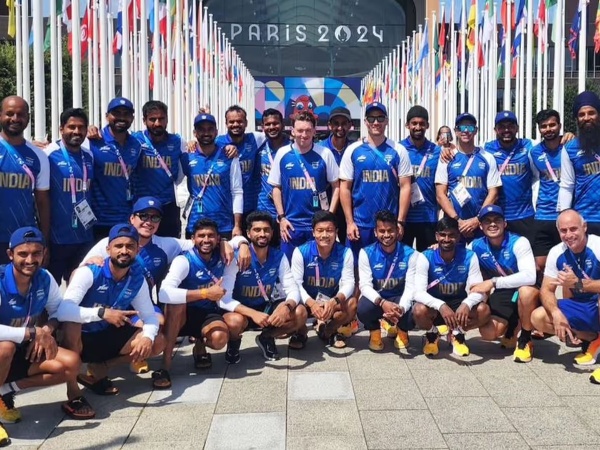Coaching, science and strong ecosystem can combine to fuel India’s Olympic aspirations
World Athletics Vice President Adille J Sumariwalla and former Chief Executive Officer of Target Olympic Podium Scheme Cmde. Pushpendra Garg (retd.) highlighted coach education and development, sports science as well as strengthening the sports ecosystem as the most critical aspects for India to improve its position in the Olympic Games Medal Table.
“Most Indian coaches do not have a science background and hence we have got the World Athletics Level 1 and Level 2 courses to India. We now have more than 2000 Level 1 coaches and 250 Level 2 coaches in India,” Adille Sumariwalla said during an insightful session on Learnings from the Paris Games in the Sportstar Conclave Focus Bihar in Patna.
Cmde. Pushpendra Garg called for coach education to be more widespread in the country and of greater quality that is available now. He pointed out that while India started coach education in the National Institute of Sports in 1961, not many other institutions offer coach education. “People must take pride in undergoing coach education and being coaches,” he said.
The former TOPS CEO was brutally candid in saying that India pays lip service to sports science. “At the moment, we are not even using 5 per cent of its capabilities in enhancing sports performance. Olympic podium finishes are not possible without a greater acceptance and use of sports science across all levels,” he said.
Adille Sumariwalla, who is a member of the Ministry’s Mission Olympic Cell that oversees TOPS funding, and Shiva Keshavan, who was Deputy Chef de Mission of the Indian contingent at the Paris 2024 Olympic Games, trained the spotlight on the need for the sports ecosystem to work as a collective unit, and not in silos, for India to get better results in Olympic Games.
“It is important to strengthen the National Sports Federations and throttling them will not help,” he said, welcoming the National Sports Bill 2025 as the first step towards ensuring good governance and the Ministry of Youth Affairs and Sports decision to lay down specific roles for each stakeholder in the ecosystem.
“The ecosystem needs to be aligned with the National Sports Federations leading the way since they have the expertise,” Shiva Keshavan said, pointing out that preparations for Olympic Games must start earlier with the Chef de Mission and other staff being appointed at least two years before the Games to ensure that there is greater coordination.
Adille Sumariwalla said the overall sports structure has to be looked at and the ecosystem fixed. “When an athlete wants six support staff and gets them sanctioned by MOC, why should the Federations be blamed when the athlete does not do well in the Olympic Games. At the MOC, we have spoilt many athletes,” he said.
Both Shiva Keshavan and he called for the imbroglio in the Indian Olympic Association Executive Committee to be resolved. “Without that, Olympic medals and the vision of hosting the 2036 Games in India will be a pipedream,” the former AFI President said. Shiva Keshavan called it a huge mess and hoped it would be sorted out at the earliest.
Adille Sumariwalla also said the focus must shift to excellence in performance rather than just medals to reduce the undue pressure of expectations that Indian athletes face. Cmde. Pushpendra Garg echoed that line of thinking when he said that Indian athletes face too much pressure to perform, given the country’s history of meagre returns in Olympic Games.
Responding Bihar State Sports Authority Director General Raveendran Sankaran’s observation that Indian athletes crumbled under pressure in the Olympic Games because they do not have adequate exposure in big-ticket events with large crowds, Cdre. Pushpendra Garg said lack of competitive experience could not be cited as a reason.
Adille Sumariwalla added that School Games Federation of India and Association of Indian Universities have failed the country. National Rifle Association of India Vice President Mrs. Putul Kumari had an interesting response to a query about the failure of university sport. “It is tough for university sport because we have paid no attention to school sport,” she said.
She also pointed out that a lot needed to be done at the grassroots level in terms of getting the right coaches and equipment. “We have to work to support talent at this level with financial and technical support,” she said, pointing out that India needs to develop a more vibrant sports culture that touches more lives for a brighter future.
